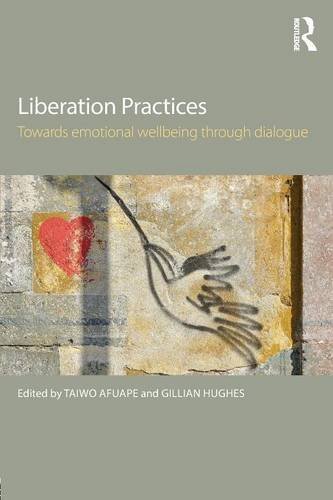

Most ebook files are in PDF format, so you can easily read them using various software such as Foxit Reader or directly on the Google Chrome browser.
Some ebook files are released by publishers in other formats such as .awz, .mobi, .epub, .fb2, etc. You may need to install specific software to read these formats on mobile/PC, such as Calibre.
Please read the tutorial at this link: https://ebookbell.com/faq
We offer FREE conversion to the popular formats you request; however, this may take some time. Therefore, right after payment, please email us, and we will try to provide the service as quickly as possible.
For some exceptional file formats or broken links (if any), please refrain from opening any disputes. Instead, email us first, and we will try to assist within a maximum of 6 hours.
EbookBell Team

4.3
78 reviewsLiberation psychology is an approach that aims to understand wellbeing within the context of relationships of power and oppression, and the sociopolitical structure in which these relationships exist. Liberation Practices: Towards Emotional Wellbeing Through Dialogueexplores how wellbeing can be enhanced through dialogue which challenges oppressive social, relational and cultural conditions and which can lead to individual and collective liberation.
Taiwo Afuape and Gillian Hughes have brought together a variety of contributors, from a range of mental health professions and related disciplines, working in different settings, with diverse client groups. Liberation Practices is a product of multiple dialogues about liberation practices, and how this connects to personal and professional life experience. Contributors offer an overview of liberation theories and approaches, and through dialogue they examine liberatory practices to enhance emotional wellbeing, drawing on examples from a range of creative and innovative projects in the UK and USA.
This book clearly outlines what liberation practices might look like, in the context of the historical development of liberation theory, and the current political and cultural context of working in the mental health and psychology field. Liberation Practices will have a broad readership, spanning clinical psychology, psychotherapy and social work.